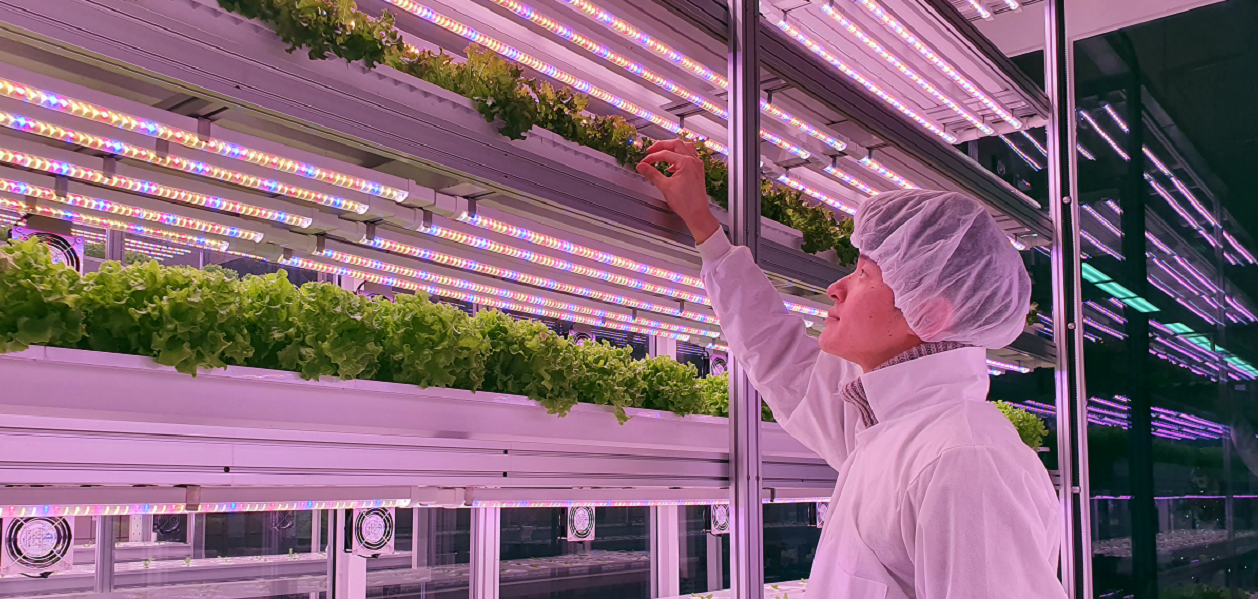Empowering the food and tech startups through open innovation
At TechInnovation 2021, MNCs and SMEs came together during the IPHatch session to learn how strong leadership, upskilling, and meaningful collaboration can lead to sustainable and successful innovation.
Designed to address the growing threat of climate change, solutions like energy storage systems, efficient irrigation methods and green transportation systems prove that technology and innovation are integral when it comes to minimising waste and pollution.
Such innovation has paved the way for sustainable development and a culture of open experimentation, with increasing number of businesses collaborating to develop cutting-edge concepts. By facilitating the sharing of resources and ideas, open innovation could lead to more efficient, diverse and lucrative business practices across industries. Additionally, finding the perfect partnership can assist SMEs and start-ups to gain access to a larger pool of resources while gaining guidance and expertise from more experienced companies.
Dedicated to matching SMEs with industry giants, this year’s IPHatch was launched on 29 September at TechInnovation 2021. Supported by IPI, the programme aims to close the gap in availability and accessibility of enabling technologies for start-ups by tapping into the R&D investments of large corporations. Find out how experts from both MNCs and SMEs are implementing open innovation to develop sustainable solutions.
Grabbing a sustainable opportunity
As commercial trends shift and consumers lean toward sustainable products and businesses, companies are beginning to invest in technologies that can reduce waste and improve processes. Adrian Leonardi, Manager of Innovation and Technologies at Continental Automotive Singapore, explains that while the significant change may seem daunting, it presents an opportunity for businesses to reap high returns while changing the world for the better.
“Sustainability is now the key driver of innovation and I see this trend becoming even stronger in the next five to 10 years,” said Leonardi. “We don’t have to choose between the social benefits of developing sustainable products or processes and the financial cost of doing so.”
Additionally, business leaders are now taking an approach that emphasises both social impact and profits when it comes to investing in innovation. According to Jenni Risku, Impact Partner of Click Ventures, with more capital facilitating rapid innovation, companies can quickly adapt sustainable practices which ideally lead to more savings in the long run.
“There’s also more capital available in the start-up space that is targeted toward founders and companies that have a two-tiered approach, for example, if they are core tech companies that also want to do good for the world,” she said.
Embarking on multifaceted paths
On top of dedicated leadership, efficiently managing staff is also vital in sparking and driving innovation in sustainability. Companies can do so by recognising the mission-driven and tech-savvy nature of the younger generation. Speakers at IPHatch’s panel discussion agreed that by moulding potential talent through training, employees will be able to apply their skills and solve some of the world’s largest issues while benefitting the company financially.
Aside from talent, it goes without saying that consumer behaviour shapes and even determines a business’ outlook. The ability to evaluate and respond to customer needs with agility and openness is also key in driving innovation. As the market shifts, businesses must keep pace with a new consumer tastes and open innovation remains an extremely effective way to adapt to these changes and maintain competitiveness.
“Being able to evolve and scale sustainable technologies to other sectors is an important criterion,” emphasised Dr Low Mun Ji, Manager of Panasonic Factory Solutions Asia Pacific. Agreeing with Dr Low, Leonardi added that an alignment of philosophies across all involved parties is also crucial to achieve a common goal.
A catalyst for growth
In the thematic session’s fireside chat moderated by Claire Lim, who drives regional business development at intellectual property investment bank Piece Future, two start-ups shared how assimilating ideas from internal and external sources can be a catalyst to formulating new concepts and devising final solutions.
By fostering open innovation, companies can minimise risks and develop cost-effective solutions to challenges. It can also result in greater partnerships that help align innovation with the industry ecosystem and create more opportunities for intellectual property co-creation.
Such efforts have greatly benefitted Seaplane Hong Kong, an aviation start-up that builds environmentally friendly hydrogen aircrafts, and TrinityEco, a Singaporean start-up that helps SMEs and investors meet environmental, social and policy demands through innovative fintech and regtech (regulatory technology).
“Through the patent awarded by IPHatch, a lot of credibility is added to our existing projects,” said Steven Dominique Cheung, founder of Seaplane Hong Kong. “It also helped us save a lot of money and shortened the time needed for R&D.”
In addition, according to Founder of TrinityEco Michael Yiin, IPHatch’s open innovation approach helped his company garner more interest from investors and bolstered its cybersecurity capabilities to keep clients’ sensitive data secure. Through events like IPHatch, MNCs and SMEs can work together to develop better technologies with support through all stages, including presenting and pitching. Ultimately, such collaborations allow forward-thinking solutions from start-ups to be successfully scaled up and applied to solve real-world sustainability issues.
Do you have a unique sustainable solution to develop? Are you looking to be a part of an impactful partnership? Click here to find out more on how to be a part of the IPHatch programme.

